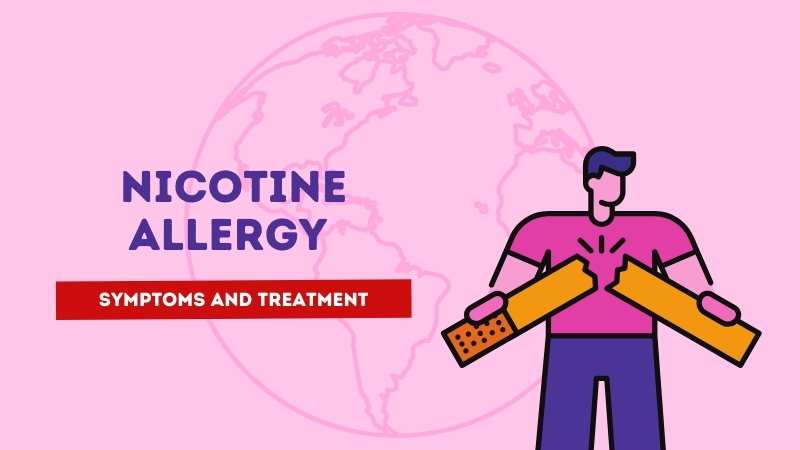
Nicotine happens to be a liquid alcohol that is present in tobacco. Those who smoke cigarettes or any tobacco product such as cigars enjoy the intoxicating feeling of nicotine. Nicotine can be addictive. The addiction is so severe that it is difficult to eliminate the habit of using it. It is soluble in water, has a bitter taste, and also forms acidic salts. It can cause serious diseases such as cancer.
Nicotine addiction is often intensified by the way it affects brain chemistry, specifically by increasing dopamine levels, which create a feeling of pleasure and reward. Over time, repeated exposure to nicotine leads to dependency, making it harder to quit. Source.
Smoking is a widespread habit. Most people are addicted to it. They smoke as they find it difficult to cope with the stresses and strains of life. But unfortunately, the nicotine contained in the cigarette and other tobacco products affects one’s life negatively. It can cause cardiovascular diseases, cancer of different kinds, etc. It is, therefore, best to get rid of the habit. Or at least reduce the number of cigarettes.
One should first find out if he is allergic or just sensitive. Many symptoms of “nicotine allergy” might be sensitivities to chemicals in tobacco products or e-liquids used in vaping devices.
Researchers have found that some people have mild to severe allergic reactions to nicotine. However, most symptoms are often due to a reaction to other chemicals in tobacco products, such as tar and additives, rather than to nicotine itself. Source.
Tobacco also contains numerous chemicals; vaping liquids have ingredients like flavorings, propylene glycol, and vegetable glycerin. People might be sensitive or allergic to these ingredients and nicotine itself.
If someone believes they’re experiencing a nicotine allergy or sensitivity, they must see a medical professional for accurate diagnosis and guidance.
Symptoms of Nicotine Allergy
Nicotine allergies are relatively rare. Few people might experience sensitivities or allergic reactions to things found in tobacco products or e-liquids. Consult with a healthcare professional if you think you are getting an allergy to nicotine for proper diagnosis. Here are some potential symptoms of a nicotine allergy:
- General Symptoms:
- Headache onset
- Feelings of dizziness or lightheadedness
- Tiredness
- Abnormal or fast heartbeat
- Ocular Disturbances:
- Eye irritation or itchiness
- Excessive tearing or redness in the eyes
- Gastrointestinal Issues:
- Feelings of nausea or instances of vomiting
- Stomach pain or cramping
- Potential Anaphylaxis:
- Breathing challenges
- Fast or weak pulse rate
- Facial or throat swelling
- Decline in blood pressure
- Possible fainting or unconsciousness
- Changed mental status or confusion
- Respiratory Distress:
- Difficulty in breathing or short breaths
- Coughing spells or wheezing
- Blocked or runny nose
- Throat discomfort or sneezing bouts
- Skin Reactions:
- Reddened, inflamed, or itchy skin
- Rash or urticaria (hives)
- Aggravated eczema symptoms
Treatment of Nicotine Allergy
Consult a healthcare professional for diagnosis and treatment. Here are potential treatments for nicotine allergy:
- Avoidance: Avoid nicotine products.
- Antihistamines: Over-the-counter or prescribed to treat allergic symptoms.
- Topical treatments: Creams or ointments for skin irritations.
- Bronchodilators: In case one is suffering from breathing issues.
- Corticosteroids: Treatment for inflammation and allergic reactions.
- Epinephrine (EpiPen): For severe allergic reactions like anaphylaxis but take only after advised by a physician.
- Allergy Shots (Immunotherapy): For extreme cases. It assists in desensitizing the body.
- Consultation: Consult an allergist/immunologist for advice.
In recent years, research into immunotherapy has shown promising results for helping reduce sensitivity to specific allergens, including tobacco-related allergies, although further studies are still required. Source.
Allergy to Nicotine Patch
The nicotine patch is primarily used to stop smoking. It is usually safe to use. But some people may face some problems by making use of it. One can suffer from breathing and wheezing problems.
Sometimes, the adhesive used in nicotine patches can cause skin irritation or an allergic reaction. This reaction is typically mild but can be uncomfortable, leading to itching, redness, or swelling at the patch site. Source.
Nicotine allergy is, no doubt, something that cannot be ignored. It can adversely affect one’s health.

2 Comments
Hello,
I am a 15 year old girl who has never smoked, or vaped. So, last night I was at this carnival with a bunch of my friends and some of them were vaping nicotine, which I was unaware of. But, later in the evening I kissed my friend on the lips, who was vaping nicotine. Afterwards, I felt a tingling in my lips. Then, when I was sleeping I woke up from terrible coughing, and it was hard to breathe. Now, the next day, the tingling hasn’t stopped, my hands, face, throat and tongue are numb, I feel nauseous, I have a headache, I’m lightheaded and I just feel heavy. So, my first thought was that it’s a food allergen, but the boy I kissed hadn’t eaten anything I’ve never had myself, and thats when I thought that I could be allergic to the nicotine he was vaping. I honestly have no idea what is happening, so if you have heard of this before and if you could give me an answer. I am very worried…
Thank you and please get back to me with any information you may have.
Get over it